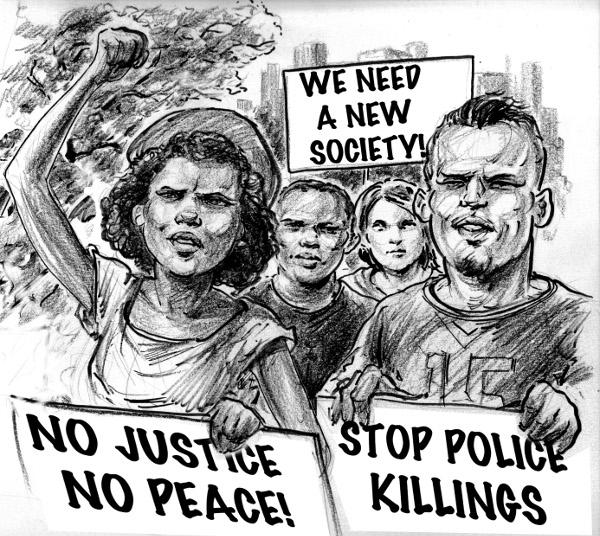
Born out of the Civil War struggles against slavery, “Juneteenth” (June 19th), has always been a time to celebrate what’s been won and to soberly assess what’s ahead for all workers.
The United States is vastly different today than it was at the end of the Civil War. After the defeat of the confederacy, the ruling class needed a way to keep most Blacks on the plantations working for virtually nothing. From this came the vicious system of Jim Crow, which subjected all African Americans, regardless of education or wealth, to the same oppression, segregation and discrimination. This created a distinct people with common interests.
Today, we live in a country where President Barack Obama, speaking recently at the commencement of Howard University’s Class of 2016, could say of African Americans: “We’re no longer entertainers, we’re producers, studio executives. No longer small-business owners, we’re CEOs. We’re mayors, representatives, presidents of the United States.”
While President Obama’s comments accurately portrayed the integration of the African American elite into the top of society, the reality is starkly different for the vast majority of African Americans, who are workers.
In the past, the brutal, legal discrimination against all African Americans reinforced the isolation of the Black masses and created a common bond between the Black impoverished and the African American elite. At the same time, racial ideology, backed up by social privileges granted to white workers over Black workers, kept Black and white workers apart. Unequally oppressed and exploited, they could not unite. Those circumstances made the unity of the working class across color lines impossible.
Today, a new impoverished class of workers, of all colors, has been created by labor-replacing electronics. African Americans are at the heart of it. This new class consists of employed and unemployed sectors. Today, more than one third of the work force consists of part-time workers, contingent workers, and those working either at the minimum wage or for less than it. Today, a unity of the new class created by electronics is possible. The class is fighting for a new society that will meet its needs.
This Juneteenth, the urgent task of revolutionaries is to spread a message far and wide, to propagandize the new class about the importance of uniting around a common, class program: to create the new society electronics makes possible—a cooperative society without poverty and racism!
Chris Mahin is a writer, speaker and teacher on contemporary U.S. politics and history, particularly on the significance of the American Revolutionary War and Civil war eras for today. He is the Electoral Desk on the People’s Tribune Editorial Board.
